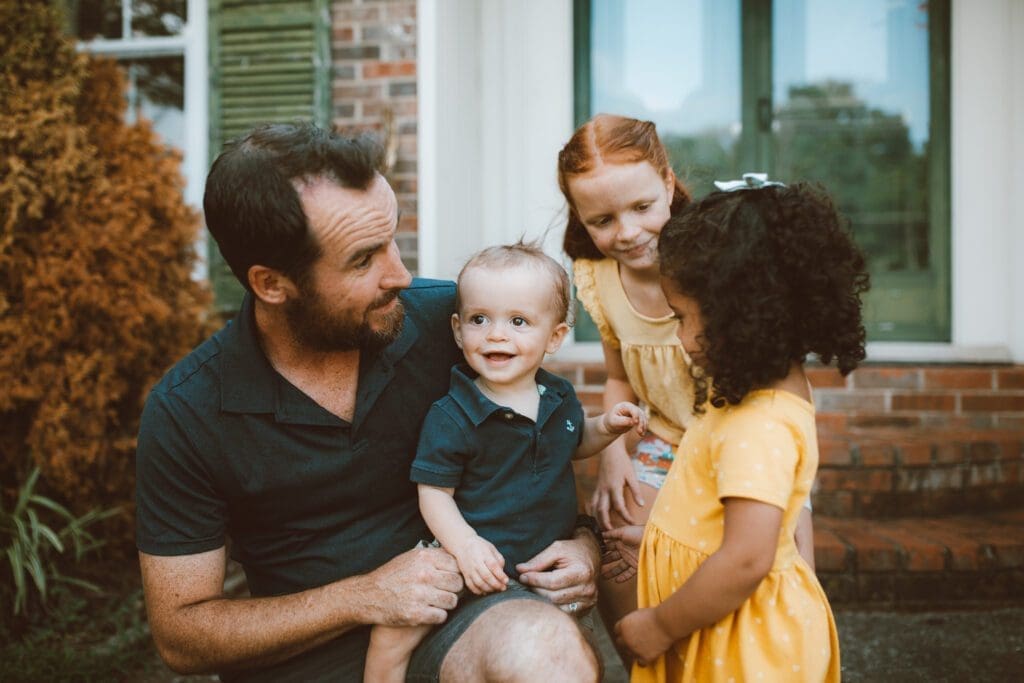
Who am I?
This question lies at the very center of the human experience. Through every stage of life and in countless ways, we seek an answer that will bring ultimate satisfaction. An answer that leads us to lasting peace and belonging.
Our identity questions are ultimately answered in the loving embrace of our Creator. He sees into the depths of our being, even the places we have yet to explore, and loves us completely and more than we could ever understand.
Created with dignity
It all began in the rich soils of Eden.
God fearfully and wonderfully formed the first humans—in His own likeness—and placed them in a lush garden. He had a glorious purpose for these creatures, a purpose that set them apart from every other living thing.
And before they could do or say anything, God blessed them. He declared them good. It had nothing to do with their performance and everything to do with the substance of their being. This is human dignity, authored and blessed by the Creator.
And despite all of the chaos and evil that was to come, the image of God remains in each and every one of us, awaiting glorious restoration.
Human dignity in a fallen world
In Genesis 4, our Creator is on the scene of the world’s first murder. The first human life—a life that bore God’s very image—had been taken. His blood had spilled on the now-cursed ground and cried out for justice.
“What have you done?”
Ignoring God’s urges to conquer his sin simmering below the surface, Cain’s jealousy and anger swelled.
Since the fall of humankind, we have failed to uphold God’s definition of human dignity. We, like Cain, tend to measure the value of ourselves and others with earthly standards. We can easily view others through lenses of greed, envy, and pride, altogether ignoring their identity as image bearers and the God-given value of their lives.
Too often, we lose sight of who we are.
Jesus and Human Dignity
“This is my beloved Son, with whom I am well pleased…”
Thousands of years after Cain, Jesus Christ was raised from the waters of baptism. The heavens opened and proclaimed exactly who He was. His identity as the beloved Son of God—His confidence in who He was and what He was sent to do—marked His every human interaction with perfect, selfless love.
Jesus saw the dignity in every person He encountered. He intimately knew the false senses of identity that bound them to brokenness. His ministry was defined by breaking people out of boxes and bringing them into perfect love.
Christ invited those assured by their religiosity into ruthless self-examination. Those known for their poverty into the glorious riches of God’s Kingdom. Those well-acquainted with oppression into spiritual freedom uninhibited by earthly power. The very first thing He saw in each person was the glorious, captivating image of His Father. He loved them by stripping away the things that kept them from their true, redeemed selves.
The nailing of Jesus’s body to a Roman cross, the value of His own life so blatantly ignored by His murderers, was the ultimate affirmation of human dignity. His sacrifice and eventual victory over death paved the way for us to value others as God does.
The Gospel Is Our “Why”
As Christians, we are invited to take on His lens of love, seeing each and every human life with the dignity it was created with. We are empowered in our transformed identities to step into the suffering of the vulnerable—those who appear radically different from us—refusing to see them as anything less than God’s beloved child.
With the Gospel as its “why,” the vision for human dignity bursts forth, extending beyond our comfort zones and pressing us forward in our Creator’s good, life-affirming purposes.


